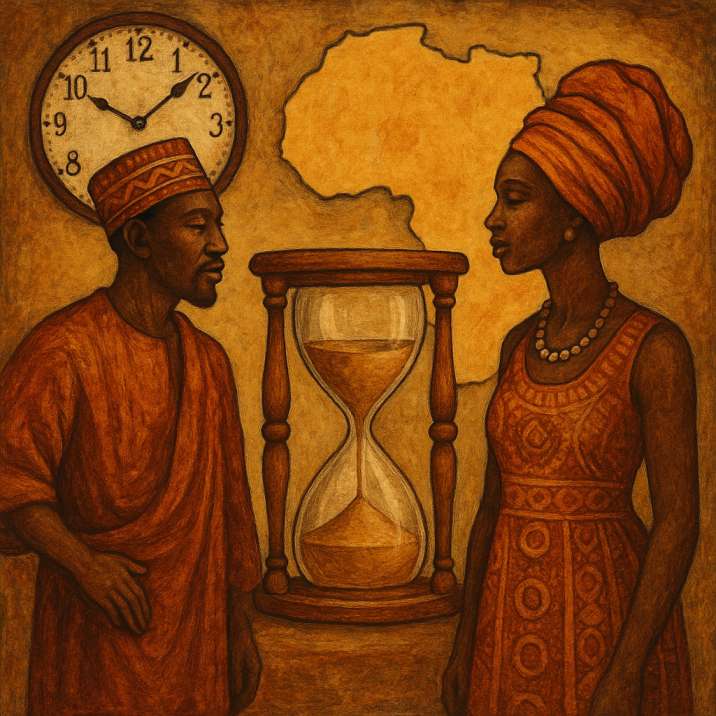Growing up, I heard this more times than I can count: “You know how African time works.” It was said with a chuckle, almost as if it were an inside joke. But beneath the laughter lay something deeper. A label, a judgment, even shame. In school, in church, in conversations with people who’d spent just enough time abroad to “know better,” African time was shorthand for delay, disorder, or dysfunction. But what if it isn’t that simple?
I remember once insisting we leave early for a family event. My uncle, amused, said, “This one has swallowed the white man’s clock.” We all laughed, but his words stayed with me. Because what we call African time didn’t begin with disorganisation. Before the clocks, the bells, and the rigid schedules, we moved with people, not alarms. Our time was relational.
When a man passed away in the village, his burial was delayed not because people were careless, but because there was a communal rhythm to honouring the dead. You waited for cousins to return from faraway towns. You let grief breathe. When a baby was born, naming ceremonies didn’t begin by 4:00 p.m. sharp; they began when the sun dipped low, when the women had finished cooking, when everyone who mattered had arrived.
Western time runs on precision. It sees minutes as money and lateness as sin. But African time, at least in its original form, runs on meaning. It asks, What’s the point of arriving early if the heart is absent? If anything, we prioritised presence over punctuality.
Of course, this isn’t an excuse for chaos. I’ve sat through government events that started two hours late for no good reason. I have missed opportunities because someone simply didn’t show up. There is a line between honouring flexibility and tolerating irresponsibility, and in many cases today, that line is being crossed.
But maybe the real tragedy is not just in the delay, it’s in the fact that we’ve forgotten where our sense of time once came from. We’re stuck between two clocks: one that values speed, and another that values presence. And in trying to please both, we end up pleasing no one. We become frustrated by the chaos yet feel disconnected from the cold, mechanical rhythm of modern life.
Maybe what we need is not to reject African time or embrace Western time blindly, but to redefine our own. To ask: How can we be timely and still honour togetherness? How do we build systems that respect efficiency without losing soul?
Time is not just about ticking minutes. It’s about what matters. And in reclaiming our understanding of it, not as laziness, but as a different kind of wisdom, we might just recover something we didn’t even realise we lost.
Written by: Miracle Chinwendu Amadi



